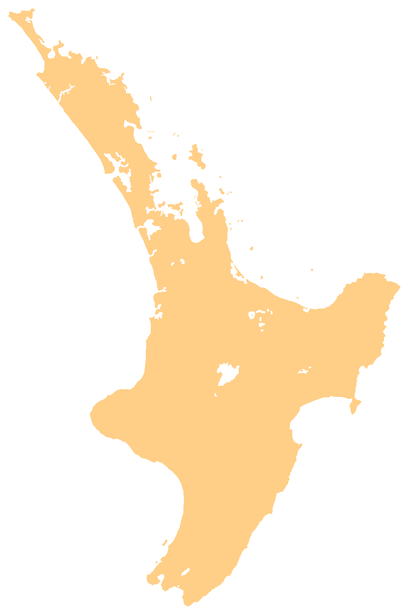Hikutaia
Hikutaia is a locality on the Hauraki Plains of New Zealand. It lies on State Highway 26, south east of Thames and north of Paeroa. The Hikutaia River runs from the Coromandel Range through the area to join the Waihou River.[1][2]
Hikutaia | |
|---|---|
 Hikutaia | |
| Coordinates: 37°17′32″S 175°39′17″E | |
| Country | New Zealand |
| Region | Waikato |
| District | Thames-Coromandel District |
History and culture
The area has a rich history of Māori settlement, with several pā in the vicinity.[3] James Cook and Joseph Banks rowed up the Waihou River on 20 November 1769 and disembarked near Hikutaia. They were impressed by the kahikatea which formed a dense forest in the area. Banks described it as "the finest timber my Eyes ever beheld".[4]
In 1794, acting on Cook's description of the forest, Captain Dell and his crew of the ship Fancy camped in a place they called Graves End, which is now Hikutaia, and took 213 kahikatea trees with assistance from local Māori. At least five ships came for more timber by the end of the century. Four Europeans were living at Hikutaia in 1799, assisting the trade in timber and the sale of Māori labour. These men lived with and married Māori.[5] Cultural misunderstandings between traders and Māori sometimes led to violence.[6]
Hikutaia was known for its cheese factory in the mid 1960s.[7]
Marae
Hikutaiā Marae is a traditional meeting ground for the local Ngāti Maru tribe.[8] Ngāti Paoa have also traditionally lived in the area.[5]
Education
Hikutaia School is a coeducational full primary (years 1-8) school with a decile rating of 4 and a roll of 86.[9]
Notes
- Peter Dowling (editor) (2004). Reed New Zealand Atlas. Reed Books. pp. map 15. ISBN 0-7900-0952-8.CS1 maint: extra text: authors list (link)
- Roger Smith, GeographX (2005). The Geographic Atlas of New Zealand. Robbie Burton. pp. map 45. ISBN 1-877333-20-4.
- Phillips, Caroline (2001). Waihou Journeys: The Archaeology of 400 years of Maori Settlement. p. 44. ISBN 1-86940-227-8.
- King, p 53.
- Michael King (1993). The Coromandel. p. 54. ISBN 0-908884-29-X.
- "Logging native forests". Te Ara: The Encyclopedia of New Zealand.
- "THAMES". Encyclopedia of New Zealand (1966).
- "Te Kāhui Māngai directory". tkm.govt.nz. Te Puni Kōkiri.
- "Te Kete Ipurangi - Hikutaia School". Ministry of Education. Archived from the original on 29 September 2007. Retrieved 9 February 2008.